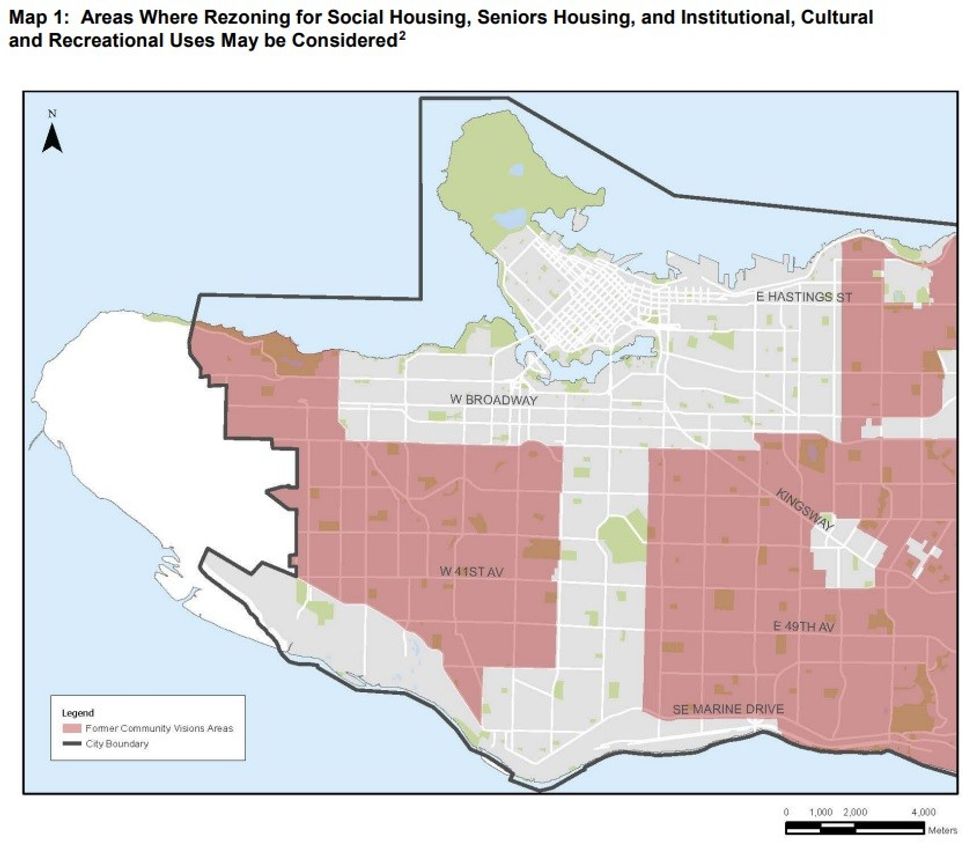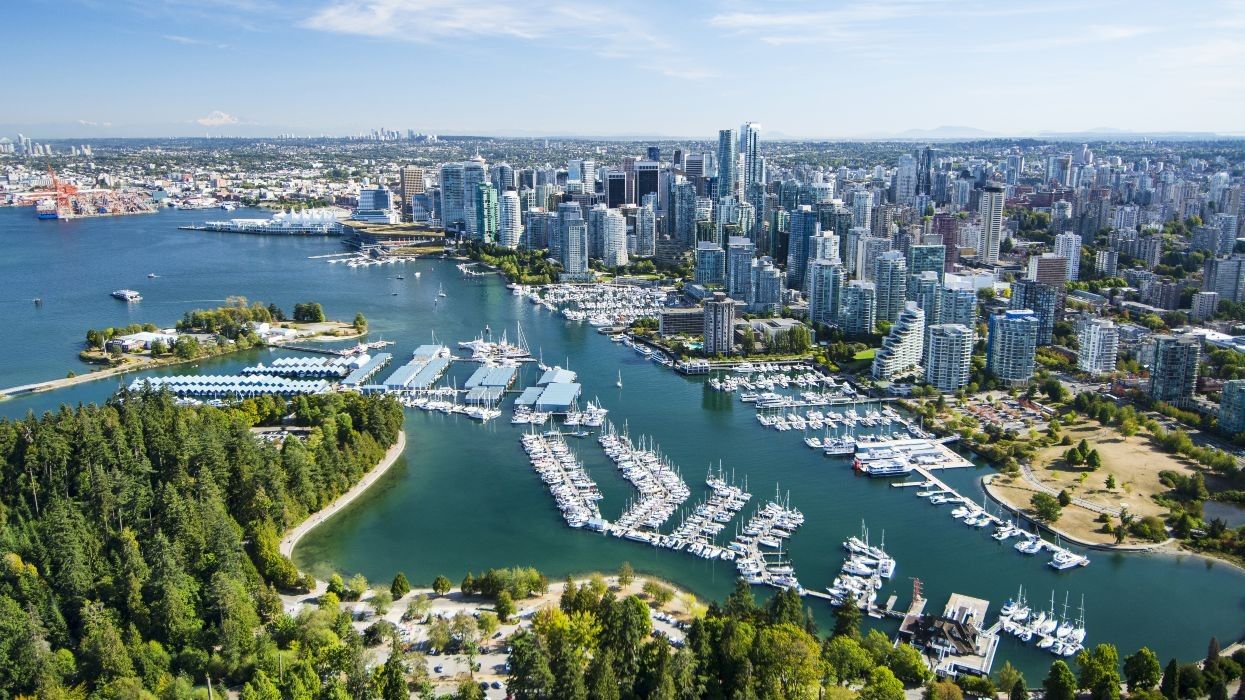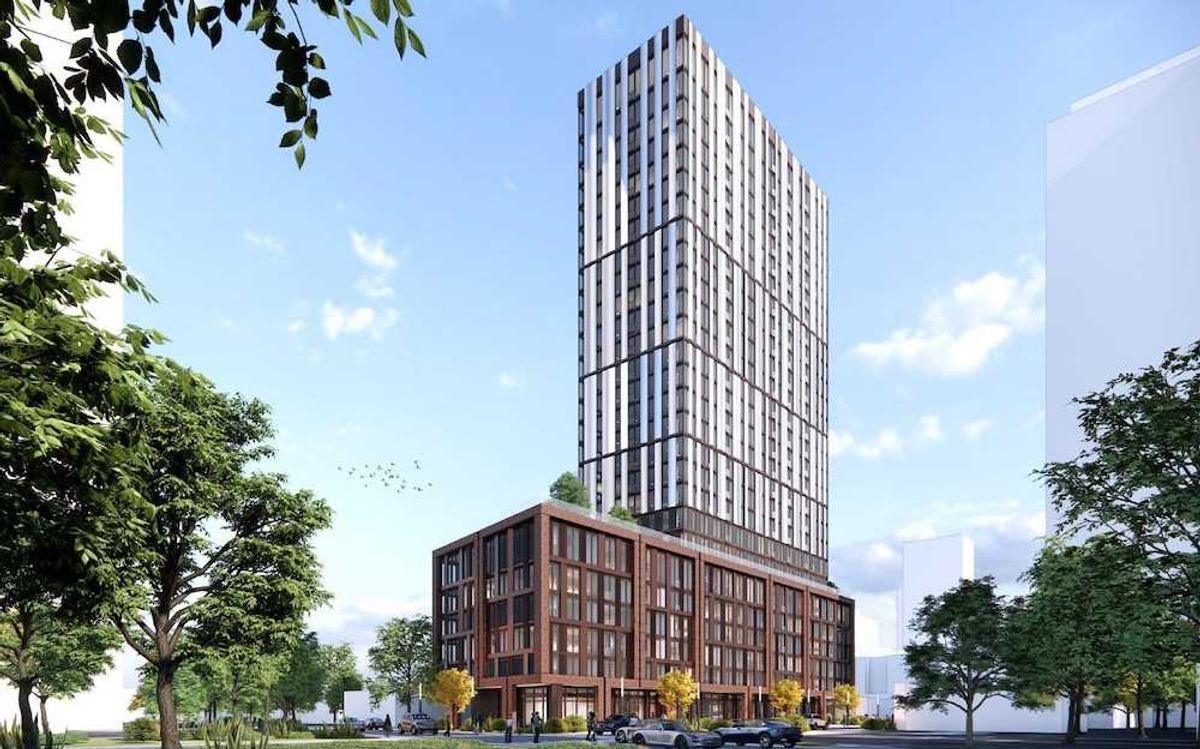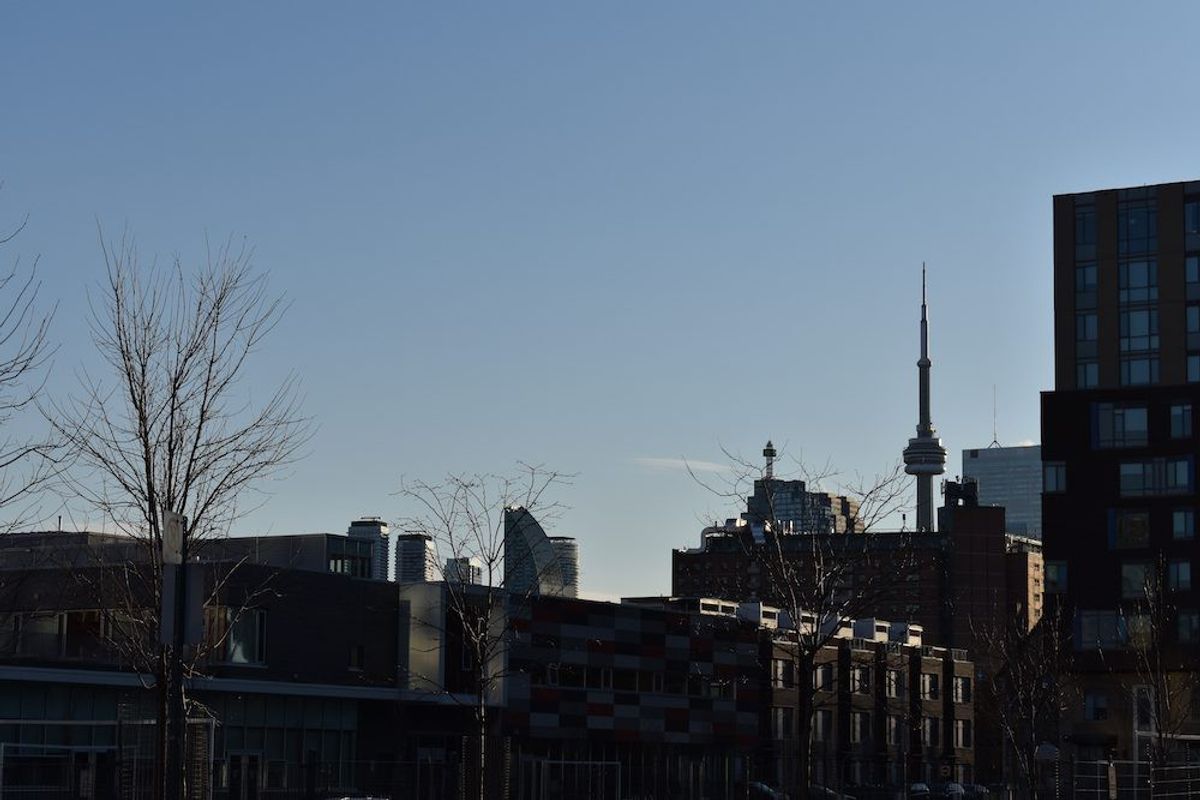Following the approval of the Vancouver Plan in July 2022, the City of Vancouver will now begin work on implementing the plan, which is billed as the "first city-wide land-use strategy to create a more equitable, livable, affordable, and resilient city."
The first step the City will take is repealing several existing policies and guidelines that are incongruent with those within the Vancouver Plan.
City staff are recommending that a set of 72 existing policies — out of an estimated 279 existing land use policies — be repealed.
Those 72 include the Vancouver CityPlan adopted in 1995, the Dunbar-Southlands Community Vision adopted in 1998, the Joyce Station Area Plan adopted in 1987, and the Agricultural Land Reserve Policies adopted in 1979.
More recent policies that will likely be repealed include the Riley Park/South Cambie Community Vision adopted in 2005, the West Point Grey Community Vision adopted in 2010, and the Passive House Guidelines for RS-1 adopted in 2015.
According to the City, many of the policies are being considered for repeal because they are outdated or were not removed after newer policies were introduced, so repealing them would amount to consolidation and housekeeping.
"Many of these documents addressed important matters when they were first approved, but were not comprehensively reviewed following the introduction of new overlapping policies and regulations," said City staff in a report to Council. "These documents cover a range of topics and geographies and, as a whole, they form a multi-layered framework that is difficult for applicants and staff to navigate, understand, and use."
City staff add that that going forward, when new policies are introduced, they will also review and remove existing policies to eliminate overlap. They also say that this initial batch of 72 policies to be repealed represents just the first phase of this work. The next phase will seek to harmonize ongoing planning work in areas such as Granville Street and Broadway with the implementation of the Broadway Plan and Vancouver Plan, with more existing policies likely to be repealed.
However, for the moment, the City recognizes that certain components of the policies to be repealed remain relevant as they relate to processing rezoning applications, so staff are recommending an interim rezoning policy be introduced as the work of implementing the Vancouver Plan continues.
"This interim rezoning policy is a consolidation of rezoning policies for social housing, seniors housing, and institutional, cultural and recreational uses that were previously contained in Community Visions documents," a draft of the policy reads. "Except for these aspects, the policies, and directions in the documents have been superseded by those in the Vancouver Plan, Housing Vancouver Strategy, and other more recent policy directions."
In short, rezoning for social housing, seniors housing, institutional use, cultural use, and recreational use will only be considered if they are for sites that were governed by one of the previous Community Vision documents. For social housing, the application has to also be for a project with 100% social housing, while applications for seniors housing have to also be "located near local shopping and services, transit, or a park."

"The proposed interim rezoning policy will apply to former Community Vision areas excluding recent community plan areas where the plan offers direction on seniors housing, institutional uses, and cultural and recreation uses," say City staff. "It will also exclude areas where residential uses are not permitted under the Vancouver Plan (i.e. industrial/employment and campus institutional)."
City staff also note that the proposed repeal of the existing policies was an implementation action that was previously outlined and has been subject to public engagement, and thus does not require public engagement at this time.
Both the repeals and interim rezoning policy will be considered at a Standing Committee on Policy and Strategic Priorities meeting on Wednesday, November 1.
- City Of Vancouver Looks To Address Hotel Room Shortage ›
- The Entire History of Vancouver's Granville Street, And Its Envisioned Future ›




















